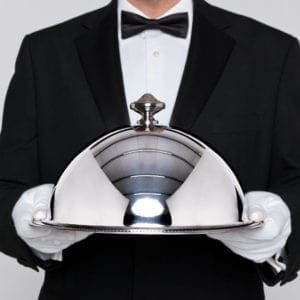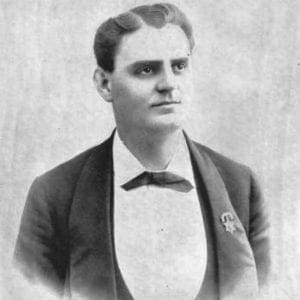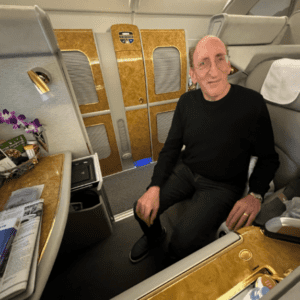 How do you engage today’s multi-device, multi-channel travel consumer and inspire a direct booking? This question fuels hotel marketers’ digital strategies and marketing dollars. Yet, when navigating the constantly evolving digital landscape, building successful campaigns that reach customers throughout the booking funnel can be daunting without the right strategy. Today’s travelers are digitally connected all over the world and inspired to take action—and the hotel brands that reach customers in intent-rich moments across devices will win the customer’s heart, mind, and ultimately the booking.
How do you engage today’s multi-device, multi-channel travel consumer and inspire a direct booking? This question fuels hotel marketers’ digital strategies and marketing dollars. Yet, when navigating the constantly evolving digital landscape, building successful campaigns that reach customers throughout the booking funnel can be daunting without the right strategy. Today’s travelers are digitally connected all over the world and inspired to take action—and the hotel brands that reach customers in intent-rich moments across devices will win the customer’s heart, mind, and ultimately the booking.
The average travel consumer journey takes about 17 days, and the average visitor goes through 8 research sessions, 18 site visits, and 6 clicks before making a booking (Google Research). Emarketer research shows that people go through 15.5 touch points just within the week before they actually make the booking.
Mobile has dramatically changed the way we live, and it’s forever changed how hotel brands connect and engage with potential guests. Mobile has transformed the consumer journey into thousands of real-time, intent-driven micro-moments. Each one is a critical opportunity for hotel brands to build a brand connection, influence intent, and be there for every step of the travel planning journey.
So what exactly does a successful multichannel campaign look like?
Recently we worked with two valued clients, Triumph Hotels and Hotel Pennsylvania, to craft creative, conversion-focused multichannel campaigns to increase direct revenue and position the brands as leaders within the hospitality digital marketing space and their own markets. Triumph Hotels launched the “Cyber Monday ‘Count Down to Your New York Dream’” campaign, and Hotel Pennsylvania launched the “‘Selfie in the City’ Cyber Monday” campaign. The campaigns exceeded all their goals, generated major ROIs, and were honored with Platinum Adrian Awards from the Hospitality Sales & Marketing Association International (HSMAI) earlier this year.
From our experience working on successful hospitality multichannel campaigns that generate real results for our clients, we uncovered five fundamental secrets to ensure success in the highly complex and competitive travel landscape.
- Connect with travel consumers by tapping into their passion points
According to Think With Google, “travelers turn to the web early in the travel process with 65% of leisure travelers and 69% of business travelers noting that they begin researching online before they decide where or how they want to travel.”
As a result, we see more distinct phases of the travelers’ buyer journey, including day dreaming, planning, booking, anticipating, planning en route and upon arrival. In order to tempt travelers to engage with your brand and book, you’ll need to find them during the initial phases of the buyer’s journey. The most effective way to do this is to gain an understanding of what really motivates your customer segment. Then, you can indulge them with quality content that will connect and engage travelers with a broad range of destination- and deal-focused information.

Part of this approach includes tapping into customer passion points. For example, Triumph Hotels found that the travelers most likely to book were those who were looking for the best deal to realize their dream of traveling to New York City. Taking into account their purchase intent and motivation, Triumph Hotels was able to establish a price point to appeal to their target demographic, aided by an emotive message, “Countdown to Your New York City Dream.”
Similarly, Hotel Pennsylvania found that international travelers often take selfies near iconic landmarks as a badge of honor. Looking to increase their revenue from international travelers, we worked with Hotel Pennsylvania to develop a strategy to capitalize on this cultural phenomenon.

Tapping into the customer’s passion points and developing strategic messaging and creative around it is where the magic of a successful multichannel campaign begins. It is the key to motivating and inspiring travelers, which will ultimately win the customer relationship and win the direct booking.
- Increase urgency and engage with consumers through interactive technology
With endless choices for how to travel and where to go at their fingertips, travel shoppers are spending more and more time browsing. What does the travel journey entail? It takes about 17 days, and the average visitor goes through 8 research sessions, 18 site visits, and 6 clicks before making a booking. Emarketer research shows that people go through 15.5 touch points just within that week before they actually make the booking.
So how do you compete in such a volatile market? Present them with an offer they cannot refuse. Utilizing technology to create a sense of urgency, like a limited-time offer, is likely to help gain attention quickly and make users act right away.
Triumph Hotels Limited Time Offer Interactive Application:

An interactive application or parallax site can act as the hub of your multichannel campaign and allow travel consumers to engage with the promotion in a way that feels on-brand and seamless with the property website. The key to successful technology is to focus on usability and the experience through engaging photography, share functionality, dynamic content and emotive messaging to incentivize consumers to make the booking.
Examples of interactive technology for multichannel campaigns include:
Interactive promotion application -Generate buzz, increase email list, and drive incremental bookings with an engaging giveaway.
Limited-time offer application – Create a sense of urgency, increase email list, and drive bookings for an upcoming need period.
Parallax site – Create rich content for lifestyle campaigns and showcase photography in unique ways.
- Be culturally relevant and incorporate causes people care about.
Hoteliers have a unique capability to portray elements of their property and surrounding area in a way that speaks to what’s important in pop culture. How do you do this? Identify what people are saying about your destination and find ways to integrate that messaging into your marketing. For example, using the phenomenon of taking selfies at iconic New York City landmarks framed the strategy for Hotel Pennsylvania’s multichannel campaign that targeted international travelers.
Hotel Pennsylvania eBlast:

Stuck on ideas? Start by staying on top of pop culture trends for inspiration within easy reach. Movie and TV locations (real or imagined) are often great starting points. In other cases, you may find it more appropriate to develop a campaign that is still relevant but appeals to the masses. Can you identify a cultural ‘event’ like Cyber Monday? In developing a campaign strategy for Triumph Hotels, we focused on delivering the best deal to travelers and incorporated a ‘happy hour’ during their Cyber Monday campaign to generate interest and increase a sense of urgency.
Triumph Hotels eBlast:

While culturally focused campaigns are a great way to be socially relevant, launching campaigns that integrate a cause that people care about is a great way to be socially conscious and give back to the community. Integrating a cause into your campaign builds an emotional connection with customers and makes a meaningful difference while achieving campaign goals.
A HeBS Digital client, Red Lion Hotels, created Project Wake Up Call for its lifestyle brand Hotel RL, which partners with local charities in each property destination to support the homeless. For a donation of $100 or more, donors receive a complimentary room at any Hotel RL location.
Red Lion Hotels Project Wake Up Call:

If your hotel brand or property doesn’t support an ongoing cause, consider launching seasonal campaigns that tie into causes like Breast Cancer Awareness Month. For every reservation, a percentage of the booking can be donated to the cause.
- Include a social component.
The best advertising you can get for a multichannel campaign is word of mouth and user-generated content from your brand ambassadors. To reward user-generated content, include a creative hook to encourage visitors and potential guests to share the promotion on social media.
For example, Triumph Hotels incorporated an element in its limited-time offer, encouraging visitors to tweet to win a 6-course meal at Juni, a top New York restaurant.
Triumph Hotels Cyber Monday Tweets:

Similarly, Hotel Pennsylvania turned to Instagram, where guests were prompted to share their selfies on Instagram with the hashtag #hotelpennselfie to be entered users would be entered to win a future getaway. Guests Instagram adventures were featured in real time on the hotel website in an Interactive Instagram Feed for current and potential guests to enjoy and to generate social media buzz and awareness.
Hotel Pennsylvania Facebook Promoted Post:

Hotel Pennsylvania Interactive Instagram Feed:

This encourages interaction between hoteliers and visitors to the site, but also builds buzz around the offer and the brand. Integrating unique social sharing functionality within your limited-time offer or multichannel campaign encourages users to expand the offer’s word-of-mouth reach by sharing and interacting with their online network. One person’s trip can spark inspiration for another traveler’s future trip.
- Launch campaigns on the three screens and optimize for success.
It’s not enough to just launch a campaign. You need to continuously monitor, tweak and optimize campaigns after launch to see the best possible results. Be sure to develop campaign KPIs beforehand so that you can optimize important success influencers such as marketing mix, share of voice, and pacing based on campaign performance.
The key is to not “launch it and forget it.” For example, in the case of Hotel Pennsylvania’s ‘Selfie in the City’ Campaign, we sent a second eBlast based on the performance of the first one. We added this to the marketing mix to further increase visibility of the promotion as a final push to drive bookings and meet revenue goals.
Hotel Pennsylvania eBlast:

Monitoring campaign metrics in real-time is just half the battle. With 90% of travel planners using multiple screens sequentially when booking a trip (Google), optimizing campaigns across devices is also a top priority. First, launching fully-responsive designs and marketing initiatives is crucial to campaign success. Next, to successfully optimize across devices, it’s important to develop unique KPIs for each screen. For instance, on mobile you should prioritize KPIs such as impressions, click-to-calls, and engagement metrics where on desktop you should prioritize KPIs such as conversions. Since many users research travel on mobile then move to desktop to complete the booking, identifying unique KPIs for each screen will allow you to better optimize throughout the consumer travel planning journey.
And finally, when optimizing campaigns, don’t forget important consumer-facing strategies such as A/B testing of marketing messages, images, and design elements, as well as tailoring campaign messaging for each screen. For instance, potential guests engaging with mobile campaigns are typically on-the-go, so content and marketing initiatives should focus on highlighting the most important information to aid in the path to purchase. Depending on when you reach mobile users in the purchase funnel, focus on initiatives such as videos that inspire, mobile-friendly destination content that aids in travel planning, offers and promotions with a clear call to action that are easily bookmarked for transition to desktop, and prominently displayed last-minute rates to drive last-minute mobile bookings.
Triumph Hotels Mobile-Friendly Destination:

Overall, if building meaningful, memorable multi-channel campaigns that inspire is key to reaching and engaging audiences, ongoing optimization ensures your efforts are results driven – and is one of the best ways to ensure that your campaigns are set to succeed.
In Summary:
For hoteliers, the increasingly complex travel consumer journey demands an increased emphasis on finding new and innovative ways to capture the attention of audiences. Before you launch your next multichannel campaign, ask yourself:
- Does it tap into my target’s passion point?
- Does it utilize urgent or engaging technology?
- Is it culturally relevant to my audience?
- Does it entice people to share on social media in a meaningful way?
- Does it effectively reach people on the three screens and is there a plan in place to optimize after launch?
If you can confidently say ‘yes’ to each of these questions, you are well on your way to a successful, results-driven campaign that will ultimately make a strong impact on your bottom line.
Related Case Studies:
Hotel Pennsylvania’s ‘Selfie in the City’ Cyber Monday Campaign, a Platinum Adrian Award-winner, created an experience that targeted the adventure seeking and discovery-minded international leisure travelers. Guests who viewed this package were served an offer that included daily breakfast for two, a map of New York City for exploring and a selfie stick for capturing the fun. Guests were also promoted to share their selfies on Instagram with the hashtag #HotelPennSelfie to be entered in a future giveaway. This campaign generated an impressive 3,835% return on ad spend. It also resulted in an increase in social media buzz surrounding the brand by 700%. We’ve seen that selfies really sell, especially when combined with a variety of efforts to take hoteliers’ digital strategies to the next level.
Similarly Triumph Hotels’ Cyber Monday Campaign saw success via an increase in revenue of over 180% year over year after focusing on a strategy aimed at securing bookings for slow winter months. By taking advantage of one of the largest online spending days of the year Triumph Hotels was able to engage some of the 40% of online shoppers looking for travel deals on that day. A “countdown to your New York dream” capitalized on the limited time offer application, encouraging travel consumers to book a room at 30-50% off, with the steepest discounts being offered during a “happy hour.” The results? Web traffic for this campaign reached an all-time high and increased bookings. Specifically, this multichannel campaign generated $732,172 in revenue, a 6,470% return on ad spend. Sounds to us like the campaign lived up to its promise, providing a New York dream for hundreds of guests and a great Q1 for Triumph Hotels.
About the Authors and HeBS Digital

Margaret Mastrogiacomo is Senior Director of Creative Strategy and Sara O’Brien is Associate Director of Marketing at HeBS Digital, the hospitality industry’s leading digital technology, full-service hotel digital marketing, website design and direct online channel consulting firm based in New York City (www.HeBSDigital.com).
HeBS Digital has pioneered many of the “best practices” in hotel digital marketing and website revenue optimization, as well as a range of industry-first digital technology applications. The firm has won more than 350 prestigious industry awards for its digital marketing and website design services, including numerous Adrian Awards, Davey Awards, W3 Awards, WebAwards, Magellan Awards, Summit International Awards, Interactive Media Awards, and IAC Awards.

A diverse client portfolio of top-tier major hotel brands, luxury and boutique hotel brands, resorts and casinos, hotel management companies, franchisees and independents, and CVBs are benefiting from HeBS Digital’s direct online channel strategy and digital marketing expertise. Contact HeBS Digital’s consultants at (212) 752-8186 or success@hebsdigital.com.



















